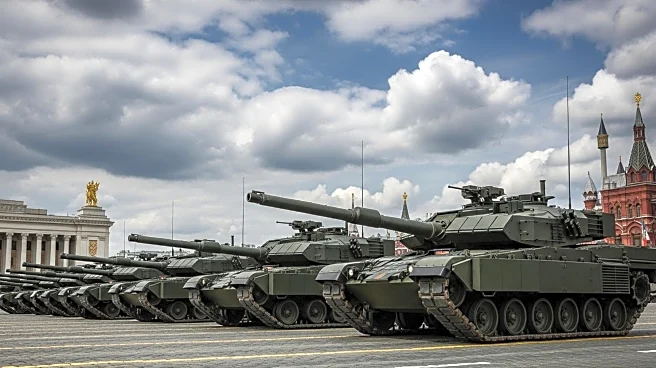What's Happening?
Chinese leader Xi Jinping presided over a military parade in Beijing to commemorate the 80th anniversary of the end of World War II. The event featured a display of China's military strength, including missiles and modern fighter jets, some of which were shown publicly for the first time. Xi's speech emphasized the choice between peace and war, advocating for dialogue over confrontation. The parade, attended by international leaders such as Russian President Vladimir Putin and North Korean leader Kim Jong Un, highlighted China's historical role in WWII and its current military capabilities.
Why It's Important?
The parade serves as a demonstration of China's military advancements and its desire to play a more influential role on the global stage. By showcasing its military might, China aims to bolster domestic support for the Communist Party and position itself as a counterbalance to U.S. influence. The presence of international leaders underscores the geopolitical alliances and tensions in the region. The event also reflects China's efforts to reshape historical narratives, emphasizing its contributions to the Allied victory in WWII.
What's Next?
The parade may prompt reactions from global powers, particularly the United States, which could lead to increased diplomatic and military engagements in the Asia-Pacific region. The display of military strength may also influence regional security dynamics, prompting neighboring countries to reassess their defense strategies and alliances. China's emphasis on peace and dialogue suggests potential diplomatic initiatives, but the underlying military posturing could lead to heightened tensions.
Beyond the Headlines
The parade is not only a display of military power but also a strategic move to reinforce China's national identity and historical significance. It serves as a reminder of the Communist Party's role in China's development and its vision for the future. The event highlights the complex interplay between historical memory, national pride, and contemporary geopolitical ambitions.










